181. Of an Eagle and a Man
When a certain man had taken an eagle, the feathers of the wings being plucked from her, he dismissed her to dwell amon ght ehens. Afterwards a certain man, having purchased her, fortifies her wings with feathers; then the eagle, flying, takes a hare and bears him to her benefactor. Which thing a fox perceiving, he says to the man, be unwilling to have this eagle in your house, lest she hunt thee as well as the hare. Then the man also plucked off the feathers from the eagle.
Moral. This fable signifies that benefactors indeed are to be required, but the wicked altogether to be avoided.
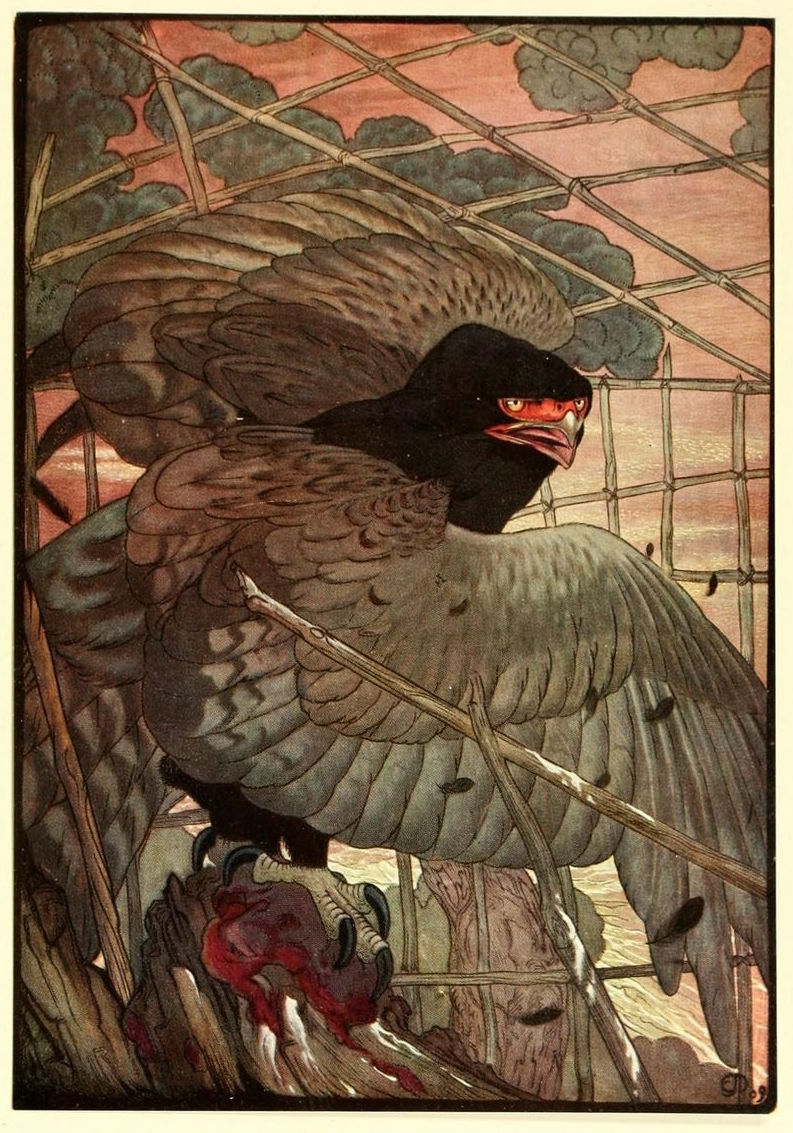
182. Of an Husbandman
A certain man, being a husbandman, when he knew that there was an end of life to him and desired his son to become skillful in the tillage of lands, called them, and said, "O sons, I depart out of life; all my goods are placed in the vineyard." They, after the death of the father, thinking to find this treasure in the vineyard, spades, mattocks, and prongs being taken, entirely dig up the vineyard and do not find the treasure, but, when the vine was well dug up, it produced by far more fruits than usual and made them rich.
Moral. This fable signifies that daily labour bringeth forth treasure.
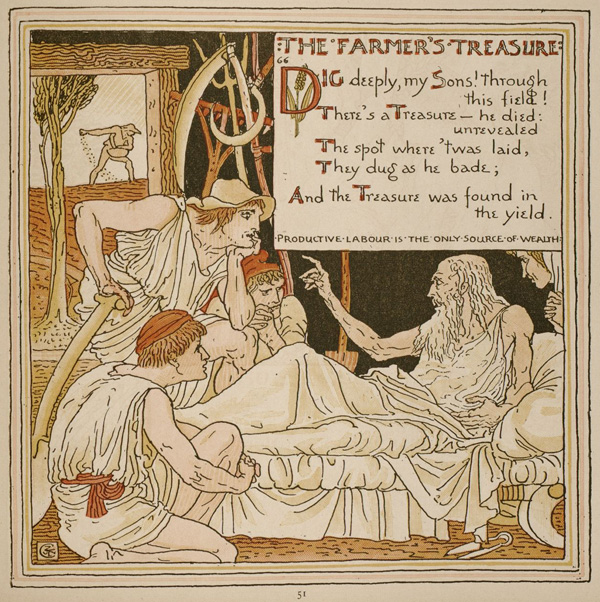
183. Of a Certain Fisherman
A certain fisherman unskillful in fishing, his net and pipes being taken, goes near the shore of the sea and, standing up on a certain rock, he began at first to pipe, thinking that he should take fishes easily with a tune, but when he obtained no effect with a tune, the pipes being laid down, he let down the net into the sea, and took very many fishes, but when he drew the fishes out of the net and perceived them dancing, he says, not unwittily, "O wicked animals, when I piped, ye were unwilling to dance, now because I cease to pipe, ye dance continually."
Moral. This fable shows that all things are done well which are done in their own season.
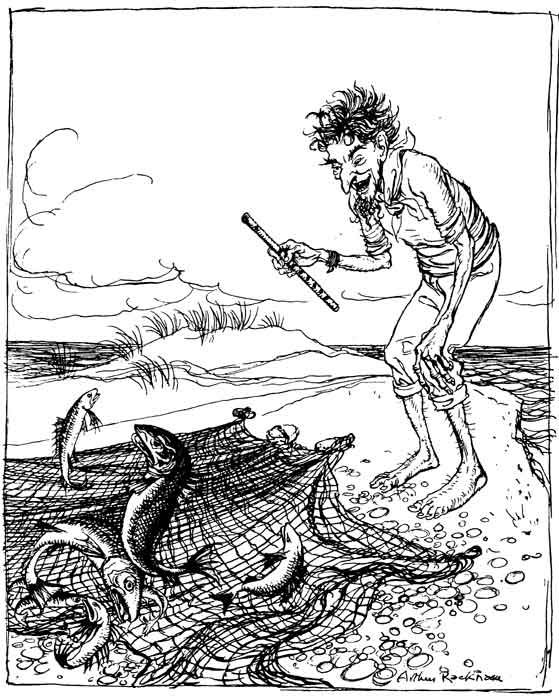
184. Of Certain Fishermen
Fishermen having gone to fish and tired with fishing a long while, besides oppressed with hunger and grief, because they had taken nothing, when they resolve to go away, behold, a certain fish flying from another pursuing him, leaps into the boat. THe fishermen very joyful take him and sell him in the city at a great price.
Moral. This fable shows that fortune offers that very frequently which art is not able to effect.
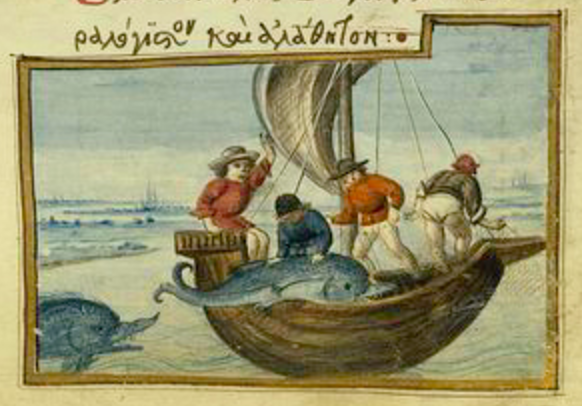
185. Of a Poor and Infirm Man
A certain poor man, when he was sick, vowed to the gods that if he should be freed from that disease, he would sacrifice a hundred oxen. Which the gods willing to try, easily restore health to him. Therefore free from the disase, when he had not the oxen because he was poor, he gathered the bones of a hundred oxen and, placing them upon the altar, he said, "Behold, now I pay the vow which I vowed to you." The gods, hearing this, stand before him in dreams and say, "Go to the shore of the sea, for there thou shalt find a hundred talents of gold in a secret place." He, having awoke, mindful of the dream, whilst he goes on to the shore, falls among thieves, who rob and beat him.
Moral. This fable shows that liars receive the rewards of lies.
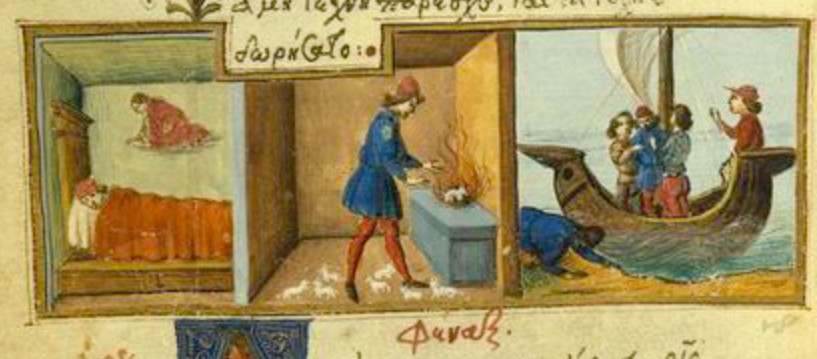
No comments:
Post a Comment
Comments are limited to Google accounts. You can also email me at laurakgibbs@gmail.com or find me at Twitter, @OnlineCrsLady.